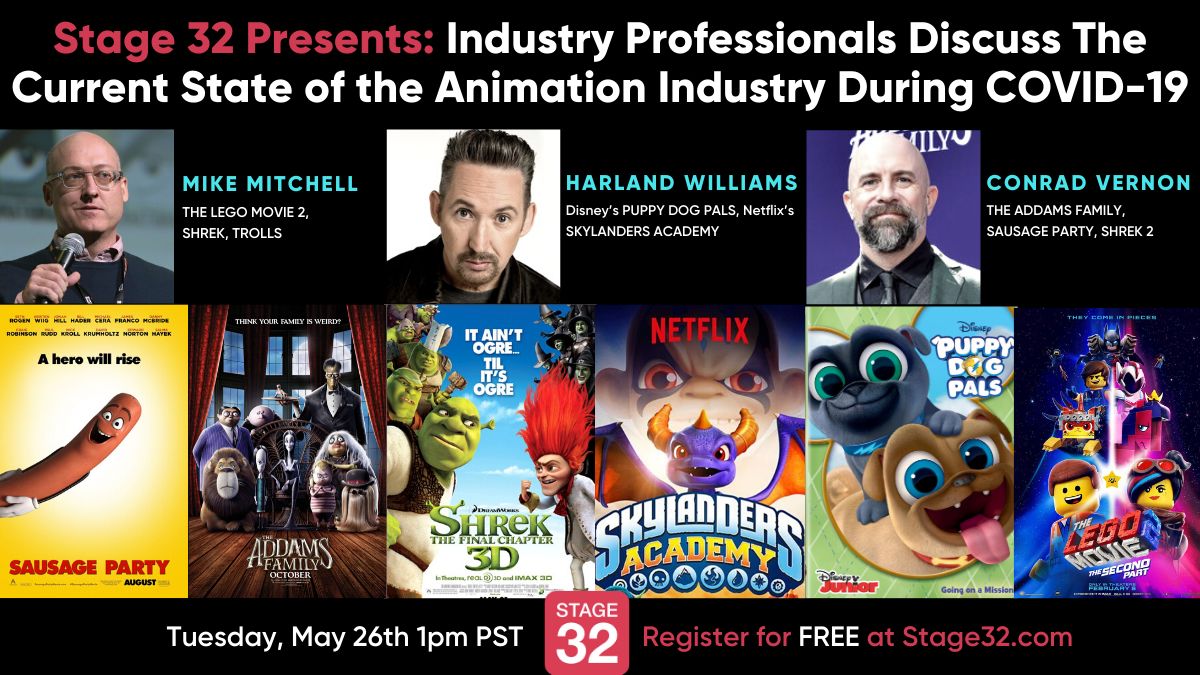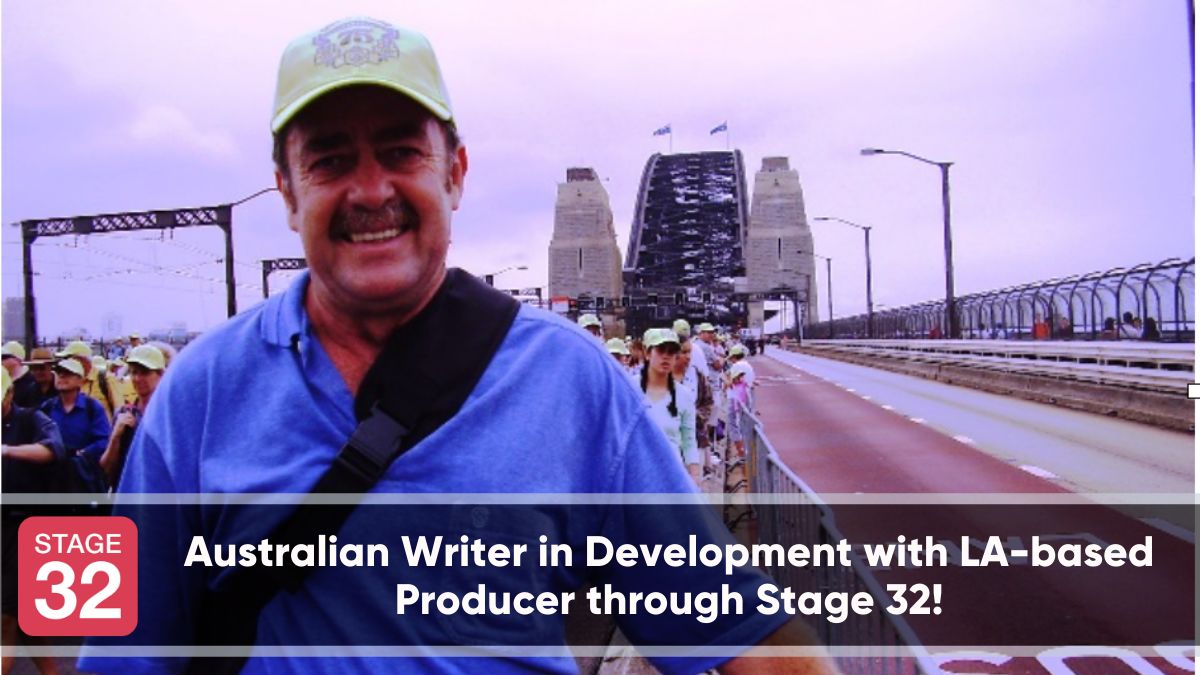How to Cast a Winning Team for Your Film
Welcome To The Family. How to cast a winning team for your film.
Casting isn't just about finding great actors, it's about recruiting a team who will deliver your vision. Here are some key ideas to help you recruit your ensemble.

Actress Sian Youngerman as ‘Amelia’ in a still from my 2017 experimental indie feature ‘The Madness of Tellaralette Seville’.
Read Between the Lines
Ensemble casting is a magical part of filmmaking. No other medium seals the chemistry of a group of people like film and this is what enables movies to be revered for years after their production; the experience can be relived frame for frame. In theatre, the experience can be replicated nightly but only it’s essence can be truly relived - subtle dynamics change no matter how well-rehearsed something is.
The purpose of this article is to help you approach casting in a practical fashion whatever your prior experience. Essentially, all casting means recruiting a dysfunctional, short-lived family of sorts but before you even advertise the roles for your project you need to be prepared.
Good, well-written character breakdowns with specific, performer relatable attributes attract good performers. Clear instructions for applicants, prepared answers to the most commonly asked questions, and a designated time frame within pre-production all help this task run smoothly. Small films will start shooting soon after casting decisions are made but films hinge on specific roles and make no mistake, good casting elevates a production into the stratosphere.
It can take time to get the right person. Sometimes there is no option but to start filming without a complete ensemble in play. This isn’t a scenario to despair over; it’s one to prepare for. Your ultimate goal is selecting a group of people who present a unified dynamic edge over their respective competition. The ingredients that work to create this collective are different in every situation so have no delusions, perfection isn’t achievable.

Poised to become First Lady of the United States Mae Cassidy (Nicola McAdam) can do nothing but compromise in ‘Super Tuesday’, my 2013 feature and fictional account of the 1960 US Election.
Learn To Compromise
If you haven’t got much in the way of resources you simply have to take casting gambles or face the reality of being a talker who never shoots a frame. From street casting random people who have never acted before to casting someone just to see if they can deliver their potential, I’ve personally given opportunity and platforms to countless people.
This is something you can always do on no-budget indie film and artistic collaborations, however, if you’re playing with budget there is no platform, and no excuse, for poor casting mistakes. Ultimately, you have to afford yourself the chance to fail but in the end, altruistic decision making based on circumstance can become detrimental to your own career progress. Sadly, in my career so far, I can’t cite any example where opportunity has been reciprocated.
As a producer, elevating the inexperienced is an involuntary process risk that demands an ability to react to setbacks. From a casting perspective, setbacks inevitably involve some form of dispute that could be resolved with a face to face conversation but won’t because someone is being too precious. That person could be you or your production team but beware of the talentless prima donna. Budgets change casting enormously. You’ll get identical disputes but as soon as you can hire and fire on a contractual basis the production’s design has shifted into fully commercial product. This means accountability is now in play. Money is at stake and you need to have serious talent if you’re going to waltz on set with an attitude of trouble.

Happy days filming late into a July evening on my 2015 indie feature ‘Carbon Foxes’. From left to right Georgina Blackledge, Brett Thorne, Joe Mcgruddy, Freya Parsons, Gabriella Montrose, Maria Austin and Al Carretta.
Respect The Opportunity
In the lower end of filmmaking, few performers respect the chance given to them by a casting department. There will be an initial period of superficial appreciation but more often than not, when the dust has settled and the film performs exactly as predicted you will be resented for believing in them and extricated from all future associations in a staged deceleration of interest. Actors ghost productions faster than you can say the Scottish play but don’t gasp in shock. This is a harsh truth that is conveniently ignored by many performers. Why? Human nature. Many people who aspire to perform simply aren’t prepared for the reality; hard work, attention, criticism, and shame. Watch Alison Brie in Glow on Netflix if you want to see the idealism of performance masterfully deconstructed.
Popularity means scrutiny. Talent attracts snipes, trolls, and jealousy; particularly if you’re young and overachieve or excel amongst your peers. For a vanity driven performer, the world of pressure can be a sad paradox. No one teaches you how to deal with it but it’s a factor that breaks performers and burns them out very quickly.
Strange dynamics of the psyche surround the unrealistic actor and the realistic producer needs to be aware of this. Attitude and behavior sustain a professional, talent just helps. More specifically, the influence you have (as a person) on other people defines your contribution to performance. This is the ‘X’ factor you are looking to identify and recruit. Find these magical people and your production gets supercharged.

Mid-argument actor Paul Bridger looks with intensity at Elizabeth Cachia in rehearsal for Bridger’s stageplay ‘Homeless Comforts’, which I directed at Etcetera Theatre, Camden (London) in Summer 2017.
All Drama Needs Conflict
Apparently, it takes two to tango. However, I’m pretty sure there is a mime act who can convince you they are doing the job of two just perfectly. Welcome to casting; the brutal process of accepting and rejecting people based on the parameters afforded to you by multiple conflicting opinions including your own. The script, director, producer, and other actors will all have a stance. The endgame is the ensemble that finally delivers the production.
If you’re not good with people, recruitment isn’t the job for you. Good interpersonal communication skills are a must and to use a very British turn of phrase you’re going to deal with a lot of muppets. Most casting directors won’t be so blunt but having spent my whole life recruiting someone for some project or another I think I’ve seen most things.
If you have an issue lending your looks to a role, maybe being in the spotlight isn’t for you.

Rachael Sparkes, a graduate of East 15 Acting School (Essex, UK), as Connie Castille in the lead publicity image for my 14th indie feature ‘Princess in the Castle’ shot in 2019.
Theatrically Trained? Yes, please!
Never overlook theatrically trained actors from credible drama schools. Good ones are gold dust but most importantly they’ll understand textual analysis and the art of nuanced performance. These are skills so often missing from the untrained screen actor.
Read between the lines of an application instantly. Review diligently. This involves objective deconstruction of actor supplied media resources alongside gut instinct. You need to be a brutally efficient human resources department and, as much as it would be nice, you can’t acknowledge everyone you reject. Oh, and don’t forget, actors reject you too.
“This is a tricky email to send. I’m going to be honest, I really like the premise of the film but I don’t feel like the script lives up to the idea. I feel like there is too much explanation within a lot of dialogue, not enough suspense and no real redeeming features for any of the characters. I find it hard to like any of them. Unfortunately, going off this version of the script, I will have to decline the role.”
Above is an actual casting response. If you don’t want the lead role after you’ve smashed the audition in your self-tape, politely decline and move on with life. Don’t seek attention for the sake of it; it gets you remembered for all the wrong reasons.

In my 9th indie feature ‘Bad Caller’, Freya Parsons - also a graduate of East 15 Acting School - plays ‘Taryn Spring’ a social media savvy call show host harassed by a ‘bad caller’.
Smile For The Camera
Life is full of difficult personalities but indie film attracts rare breeds. The ego you thought couldn’t exist does exist and will find it’s way into your production like a chest-burster from Alien. In recent years a new breed of social media influencers have been penetrating acting. These people aren’t traditional performers and adopt the self-referential manner that Ryan Reynolds uses in Deadpool. It works for that film, but the ‘social’ acting prevalent across the Internet isn’t the traditional dramatic performance film needs. Many actor applications will involve an exclamation of a ‘huge social media’ following. If you’re an actor your agent will probably insist producers want to see this too but I’ve never seen this kind of ‘profile‘ help. I’m convinced social media creates self-serving noise but on smaller scales, it does little to sell tickets.

Musician Barry Philips in a still from the 2016 music video 'Flowless Dreams' by the IKV Project
Beware The Attention Seeker
Ironically, attention-seeking performers can be hard to spot. There are real production killers out there with serious narcissism issues. I could write an entire book on jaw-dropping behavior from bad actors that would put Russell Crowe, Mel Gibson and Christian Bale to shame.
Warning signs from misfits begin with minor diva concerns that direct attention to them from more important production aspects. Vanity based objections to stills usually creep in. Small script sections get queried. Alarm bells ring and the ego starts disrupting regular filming days as the mismatch gets exposed - these clowns just aren’t good enough to join your circus.
Once You Start Shooting
Post-casting, one of the most embarrassing situations to deal with in indie film or theatre is what I call the ‘Lolita Inversion’. The problem only manifests with production rolling and involves the gradual collapse of an actor’s ability to perform and co-operate for apparently unknown reasons. Kevin Spacey and Annette Bening reflect one half of my inversion scenario perfectly in American Beauty. The toxic combination of dysfunctional middle-class wealth and divorce destined marriage is definitely a health hazard to the smaller production. Fallout comes in the form of the offspring you cast in good faith. Disinterested mother doesn’t care but manipulating, overbearing father is convinced his adult daughter is still a twelve-year-old in stage school. It’s sad to watch talent you’ve invested in disintegrate but it does and then you have to close the door Godfather style.
Experience develops your ability to intuitively identify and understand skill relative to the experience of the ensemble. You can gamble on talent but the limitations of weaker performers are exposed on-screen. Bad product hangs on the director and production team far longer than it hangs on an individual’s bad performance.
You need to be a slick administrator to deliver a visual product but it all begins with recruitment. Small productions don’t have the luxury of the distance between departments. This creates a closer team but ultimately, it demands a greater expectation of co-operation between performer and production. In Awards ceremonies across the World creating the ensemble is a discipline that hasn’t attracted the attention it deserves but casting is the foundation of any successful production.
About Al Carretta

Al made his first feature film, the mafia crime drama ‘What You See Is What You Get’ in 2010 for less than $1000. In the past decade he’s written, produced and directed 15 indie features to hone his craft and get to grips with the new era of digital distribution. Never afraid to experiment with genre and a maestro of cost cutting he’s delivered a studio’s worth of output on a total spend of less than $60,000. In 2014, he launched the Nightpiece Film Festival in the Edinburgh Festival Fringe to promote fellow filmmakers from across the World.
Let's hear your thoughts in the comments below!
Got an idea for a post? Or have you collaborated with Stage 32 members to create a project? We'd love to hear about it. Email Taylor at taylor@stage32.com and let's get your post published!
Please help support your fellow Stage 32ers by sharing this on social. Check out the social media buttons at the top to share on Instagram @stage32online Twitter @stage32 Facebook @stage32 and LinkedIn @stage-32
| Stage 32 Presents: Industry Professionals Discuss The Current State of the Animation Industry During COVID-19 |
| Australian Writer in Development with LA-based Producer through Stage 32! |
Search Stage 32 Blog
There are now 4041 blog posts for you to enjoy. Search them all by tags below.
Acting, Advice, Cinematography, Coffee & Content, Composing, Contests, Distribution, Featured, Filmmaking, Financing, Inspirational, Networking, Producing, Screenwriting, Success Stories, Tips, Trending,Relevant Tags
Recommended Articles

November Write Club Week 4: The Art of the Pitch- What Managers & Execs Actually Want to Hear

Coffee & Content: The Genius of Weapons and How to Know When Your Script Is Ready

Stage 32 Featured at the 43rd Torino Film Festival!

What Stage 32's Community Is Really About (Beyond Scripts, Sets, and Showreels)

Stage 32 + DramaBox Join Forces to Launch World's First Vertical Drama Incubator

Stage 32 Now Certifying Centro de Portugal Film Commission!

Forbes Spotlights Stage 32 Certification!

Insider Intel: 2025- Your Year of Breakthroughs (+ What's Coming in 2026)

Stage 32 Is My Magic Key To International Networking And Education






